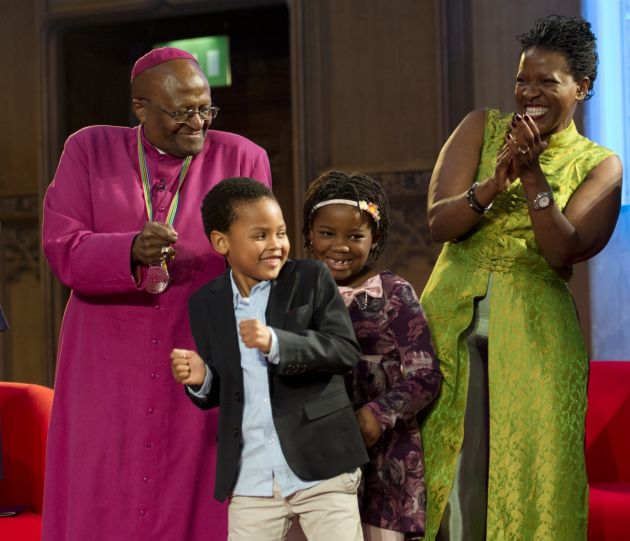Desmond Tutu looks to his abusive father to learn forgiveness

Forgiveness is not easy, says Desmond Tutu.
It takes practise, honesty, requires open-mindedness and the will to try, says the former Anglican Archbishop of Cape Town.
The South African anti-apartheid icon has written a new book, on forgiveness, extracts of which have been published by the Guardian newspaper.
In he relates the anger he felt as a child about drunken physical and verbal abuse his father inflicted on his mother to stress how important it is to forgive others for wrongdoing.
"I can still recall the smell of alcohol, see the fear in my mother's eyes and feel the hopeless despair that comes when we see people we love hurting each other in incomprehensible ways," the retired archbishop, who is now 82 writes.
The Book of Forgiving is co-authored with Tutu's daughter Mpho, an Episcopal priest and is the executive director of the Tutu Institute for Prayer and Pilgrimage.
Tutu was the chairman of South Africa's Truth and Reconciliation Commission after the end of apartheid that began its hearings in 1996 as part of the path to democracy.
In the book Tutu says, "If I dwell on those memories, I can feel myself wanting to hurt my father back, in the same ways he hurt my mother, and in ways of which I was incapable as a small boy. I see my mother's face and I see this gentle human being whom I loved so very much and who did nothing to deserve the pain inflicted on her."
NOBEL PEACE PRIZE
Tutu, who won the Nobel Peace Prize in 1984, says his father has long since died, "but if I could speak to him today, I would want to tell him that I had forgiven him.
"What would I say to him? I would begin by thanking him for all the wonderful things he did for me as my father, but then I would tell him that there was this one thing that hurt me very much. I would tell him how what he did to my mother affected me, how it pained me."
Why, he asks, would he do such a thing?
"I know it is the only way to heal the pain in my boyhood heart. Forgiveness is not dependent on the actions of others. Yes, it is certainly easier to offer forgiveness when the perpetrator expresses remorse and offers some sort of reparation or restitution. Then, you can feel as if you have been paid back in some way."
He notes, "We don't forgive to help the other person. We don't forgive for others. We forgive for ourselves. Forgiveness, in other words, is the best form of self-interest."
Until people can forgive, they remain locked in their pain "and locked out of the possibility of experiencing healing and freedom, locked out of the possibility of being at peace."
When the retired archbishop reflects on his father's drunken tirades, he realizes he was not just angry with him, but also with himself.
"Cowering in fear as a boy, I had not been able to stand up to my father or protect my mother. So many years later, I realise that I not only have to forgive my father, I have to forgive myself."
Tutu says that all of humanity share "the core qualities of our human nature" that include generosity and selfishness; thoughtfulness and thoughtlessness; kindness and cruelty.
"The simple truth is, we all make mistakes, and we all need forgiveness. There is no magic wand we can wave to go back in time and change what has happened or undo the harm that has been done, but we can do everything in our power to set right what has been made wrong."